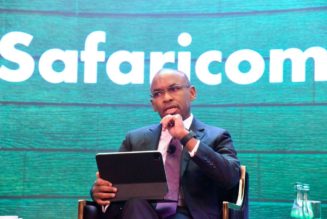
It is commendable that the Treasury is championing legislative reforms through amendment Bills covering various business, tax and public finance laws.
The amendment Bills are available for stakeholder review and input to refine them to serve their intended purposes.
The proposed amendments have a bearing on Islamic banking and finance, just like it does on the entire financial markets ecosystem.
The call for public participation in the review of the draft legislative reforms offers the Islamic finance industry stakeholders the opportunity to make their input to facilitate the realisation of the desired laws and regulations for the industry.
Despite having Islamic banking and financial services established in Kenya over a decade and a half ago, the laws and regulations have not been developed in tandem with the growing demands of the same.
Disputes stemming from Shariah-based commercial contracts between the financing parties and their clients have no accommodation in our legal systems. This challenge undermines the promotion of Islamic finance as an alternative financing model.
The benefits of having responsive legislative reforms that speak to the principles and the true spirit of Islamic finance cannot be overemphasised. For instance, changes in the Public Finance Management Act may permit the usage of commercially viable public assets to form the basis for the issuance of Islamic bonds (Sukuk).
The proceeds from the Sukuk can then be ring-fenced to support a particular project and have the generated cashflows from the committed commercially viable asset to pay the Sukuk investors. The level of transparency and disclosures are quite high and may not work in the interest of wheeler -dealers!
The Islamic Finance industry works quite well, and benefits may accrue to all the stakeholders provided there are true commitments and compliance to its principles and ideals. The very cornerstone ofIslamic Finance is risk and return sharing in a fair, transparent and accountable mechanism. There is no room for greed, exploitation, hoarding and abuse of goodwill and breach of trust.
It is worthwhile to mention that the proposed legislative reforms are designed to overcome barriers to private investment, establish sound fiscal responsibility and optimise tax policies according to an op-ed shared by Principal Secretary National Treasury Chris Kiptoo.
Islamic Finance too needs to be anchored in the proposed Amendment Bills, for Kenya to derive maximum benefits from its contributions to bolster financial inclusion as well as financial market deepening.
The realisation of the potential of Islamic Finance to contribute to economic growth and positioning Kenya as an alternative finance destination as well as facilitate domestic resource mobilisation hinges on the bureaucrats’ and policymakers’ appreciation of the same.
Now that a window has been opened for the legislative reforms that include possible amendments to the Banking Act, the Islamic Finance stakeholders should voice the collective needs of the industry.
The banks offering Islamic banking products can leverage on the lobbying capabilities of the Kenya Bankers Association (KBA) to drive the mainstreaming of Islamic finance in the financial markets.
KBA is quite an effective outfit that works in the best interest of the banking industry and the development of the financial markets.
KBA can be well empowered and facilitated to have a better understanding of the challenges that the banks offering Islamic banking services endure. Some of these challenges include but not limited to liquidity management, lack of enabling regulatory and legal infrastructure, low awareness levels amongst the consumers and governance structures not fit for purpose.
Stakeholders in the pension, Capital market, SACCOs, microfinance sectors and Takaful can easily benefit from the interventions of the banking sector which currently commands the biggest share of the IF industry.
It is time to have the collective wisdom of worthy professionals, Shariah Scholars and the IF industry leaders to come together with a view to addressing the barriers to the development of the industry.
The writer is an Islamic Finance Consultant and Director at Salaam Microfinance Bank









